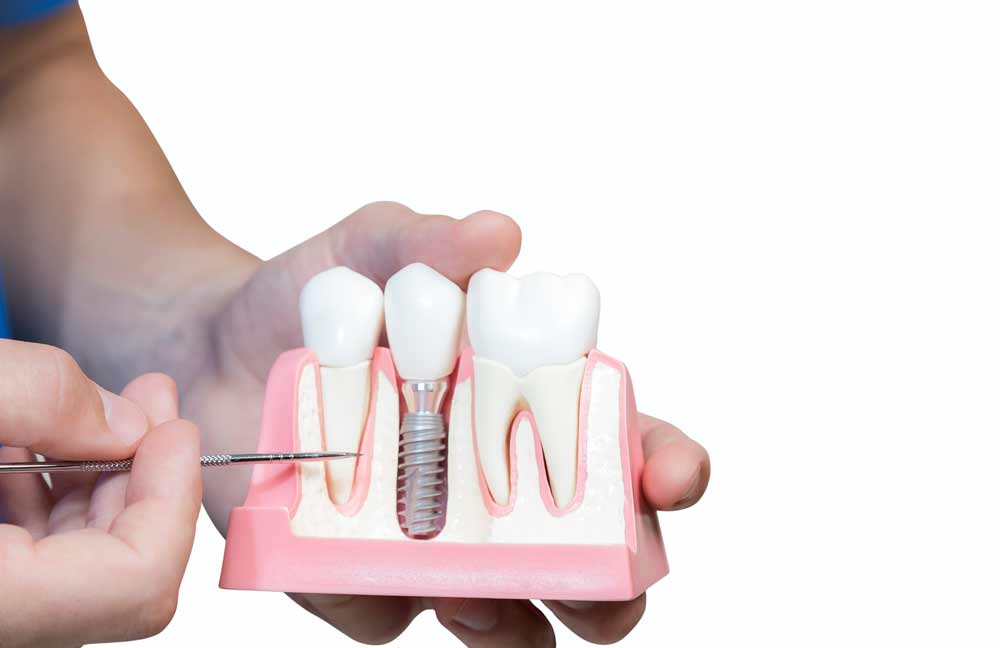Losing a tooth in Ajax may not seem severe, but it can harm oral health. Therefore, it’s best to consider a high-quality replacement. While traditional treatments include dentures and dental bridges, a dental implant is often the best solution.
How Can Losing a Tooth Affect Oral Health?
Losing a tooth leaves a gap that can destabilize the adjacent teeth, allowing them to drift out of position and potentially affecting your bite. Also, it’s more difficult to bite and chew food properly when one or more teeth are missing in Whitby. This situation can affect your food choices, digestion, and overall nutrition.
Losing a tooth affects your jawbone, too, as your natural tooth roots help keep the surrounding bone strong and healthy. Without this stimulation, the jawbone quickly resorbs, destabilizing adjacent teeth. When multiple teeth are missing, jawbone loss can become even more severe, making it difficult to wear dentures in Oshawa comfortably and affecting facial appearance.
What Is a Dental Implant? How Does It Stay in the Mouth?
A dental implant is a sophisticated artificial tooth replacement, replacing a missing tooth root because it is inserted directly into the jawbone. Once in the jawbone, the implants soon fuse with the bone, a process called Osseointegration, which takes several months to complete. Because it fuses with the jawbone, the implant forms a firm anchorage point for a replacement tooth. A dental implant can be restored with a dental crown. When multiple teeth are missing in the same area of your mouth, two or more dental implants can support a bridge. Hence, restoring every missing tooth with a dental implant in Newcastle is unnecessary.
What Materials Are Used to Make Dental Implants?
Most dental implants are made from titanium, a highly biocompatible metal with the body that fuses firmly with the jawbone. However, not everyone wants metal in their body or can tolerate it, and it is possible to have dental implants made from zirconia. Zirconia is another highly biocompatible material and a robust and durable ceramic.
How Do Implant Dentists Plan Treatment?
Planning dental implant treatment in Clarington is an intricate business because ensuring your dental implant is inserted and angulated precisely is critical. Initially, when you visit Durham Dental Solutions, our experienced implant dentist will carefully assess your suitability, discussing your dental and medical health to ensure implants are the right option. Next, we take a cone beam CT scan, a detailed 3-D image of your mouth. The 3-D image helps to identify the best location for each dental implant. The image is manipulated to ensure that once the implant is restored with your replacement tooth or teeth, these teeth look and feel natural and function correctly. Once the treatment plan is complete, you can place your dental implant using computer-guided surgery.
What Is Computer-Guided Surgery and Why Use It?
With computer-guided dental implant surgery in Pickering, your treatment plan is replicated precisely in the form of a surgical guide or stent. This guides the dental implant dentist during the procedure in inserting your dental implant, ensuring it is placed in precisely the same position identified in your treatment plan. Using computer-guided surgery helps provide a far better and much more predictable treatment outcome and ensures that the surgical procedure is quicker and smoother for patients.
We take every precaution to ensure implant treatment has an optimal outcome for our patients. Our Brooklin dental implant dentists have decades of training, skill, and experience between them, so your dental health is in good hands.


